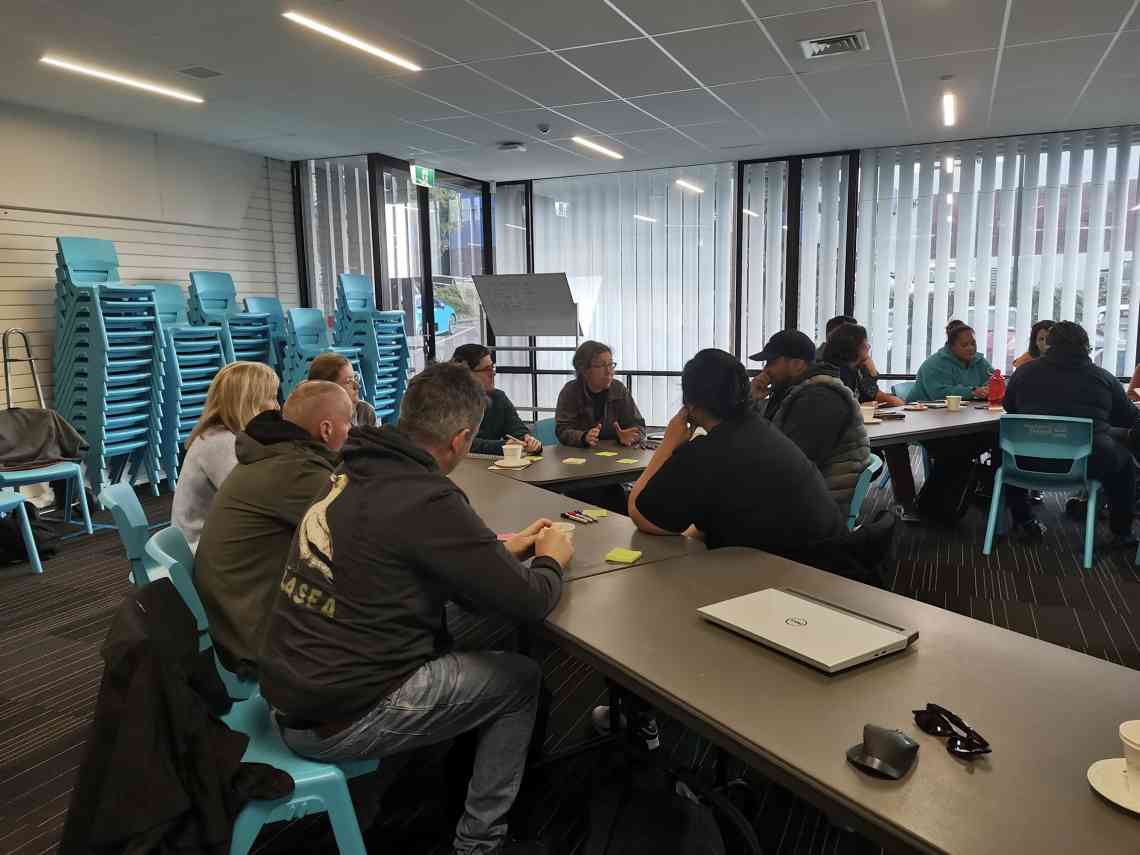
On July 10th, Te Hononga Akoranga COMET's STEM team hosted fifteen STEM educators for a workshop on culturally responsive pedagogies. This event was a special hui bringing together the project leads of the WeSTEM and Curious Minds South Auckland participatory science projects for a day of connection, learning and reflection.
We had the privilege of hearing from two amazing speakers who shared what culturally responsive pedagogies meant to them and how these could be applied to classrooms, science projects and educational programmes to enrich learning for all students.
With a background in social work and a PhD in storytelling through tatau, our first speaker was Dr Sonny Natanielu, who spoke about how each participant has their own story to tell. He emphasised the importance of honouring these stories and using them as a foundation for connecting with tauira. By sharing our personal histories and asking about theirs, educators can show that they care about each student as an individual and value creating an authentic relationship.
Sonny’s top tips for utilising our unique “cultural capital” in teaching include:
- Know your story
- Know your students’ stories
- Seek external support to grow your kete of knowledge for your learners
The second speaker was our Kaituhono Māori, Noah Meggitt. Noah shared his experience working as a Te Reo Māori HOD and reflected on how that often left him in the unofficial position of cultural advisor for the school. He offered suggestions for how kaiako could be proactive in seeking out new knowledge.
Noah reinforced the importance of doing right by our learners: “If you’re doing what’s right for your learners, you aren’t doing anything wrong.” He encouraged all teachers to be confident in their mahi and embrace indigenous knowledge, especially mātauranga Māori, through doing. "My Google is the same as your Google," Noah said. "Being Māori doesn’t open up any additional expertise. Do your own research before asking someone to do it for you. Just give it a go."
The workshop was rounded out with a brainstorming session for participants to discuss key takeaways and actions that they could implement in their participatory science projects. Inspired participants made new connections and identified concrete steps to take to nurture a more culturally responsive learning environment.
The speakers were both inspiring and thought-provoking. They left the workshop participants with a renewed sense of purpose and a commitment to creating more culturally responsive learning environments.
The Future of Education
The workshop on culturally responsive pedagogies was a valuable opportunity for STEM educators to learn from experts in the field and to discuss how to create more inclusive and equitable learning environments.
The speakers challenged the participants to think critically about their own practices and to consider how they can better honour and celebrate the diverse stories of their students.
The key takeaway for many participants was a reminder that education is not just about teaching content. It is about creating a space where all students feel safe, respected, and valued. Fostering positive relationships with students is the key to helping all learners stay engaged, and learning will naturally follow.
The future of education is one where all students have the opportunity to succeed, regardless of their background or circumstances. By creating more culturally responsive learning environments, we can help to make this future a reality.